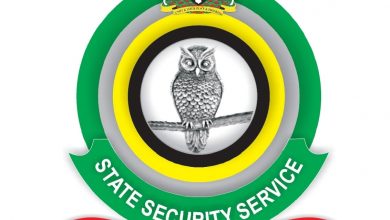8 Conflict Resolution Skills And How To Use Them At Work

Conflict Resolution Skills & How To Use Them At Work: An argument or dispute is referred to as a conflict, and it can happen in a variety of situations and places, including the workplace. It’s critical to comprehend how to negotiate and settle conflicts. You’ll frequently need to read nonverbal and vocal communication cues, maintain composure and emotional control, and attempt to comprehend the positions of the disputing parties if you want to successfully settle disagreements. EnoughInfo.com

In this post, we look at examples of conflict in the workplace, seven particular conflict resolution skills that may assist in de-escalating a disagreement, and how to resolve a problem in ten stages.
Read Also: Network Administrator Job Description( Duties /Responsibilities)
FAQs & Answers
Why are conflict resolution skills important in the workplace?
Conflict is common in the workplace, and unresolved conflicts can lead to negative consequences such as decreased productivity, increased turnover, and a toxic work environment. Conflict resolution skills help individuals manage and resolve conflicts effectively, creating a positive work environment and improving teamwork and productivity.
Can conflict resolution skills be learned?
Yes, conflict resolution skills can be learned through training, practice, and experience. By actively seeking out opportunities to develop conflict resolution skills and practicing them regularly, individuals can become more proficient in managing and resolving conflicts.
How can conflict resolution skills benefit individuals outside of the workplace?
Conflict resolution skills are useful in all areas of life, including personal relationships, community involvement, and other settings where people interact with each other. Effective conflict resolution skills can lead to better communication, improved relationships, and a more harmonious and peaceful environment. How To Freeze Location And Find My Friends
What is conflict resolution?
When two or more parties have divergent goals, viewpoints, or behavioral preferences, conflicts may occasionally occur at work. The skill of handling disagreements and locating a common ground that enables everyone to cooperate harmoniously in conflict resolution.
Sometimes the person who settles a dispute may be a third party or mediator, while other times they may be a party to the dispute who uses an objective viewpoint to address the issue.
Examples of conflict in the workplace
- Personality clashes between co-workers or between an employee and their manager.
- Differences in work style or approach to completing tasks.
- Disagreements over work assignments or distribution of work.
- Issues related to compensation, promotions, or other benefits.
- Discrimination or harassment based on race, gender, age, sexual orientation, religion, or disability.
- Power struggles or conflicts over authority.
- Lack of communication or miscommunication between employees or departments.
- Conflicts arise from organizational change or restructuring.
- Competition for limited resources or budgets.
- Disputes over intellectual property or ownership of work-related ideas or inventions.
- Conflict arising from ethical concerns or violations.
- Conflicts related to work-life balance or scheduling conflicts.
- Clashes over workplace culture, values, or norms.
The skill to resolve conflicts
Conflict resolution skills are frequently seen as leadership qualities. Many companies value the contributions of people who can recognize conflicts, determine their root causes, respect divergent viewpoints, and forge a compromise. They increase the likelihood that differences of opinion will be put aside so that work may proceed.
Conflict resolution skills
Active listening
One of the most important skills in conflict resolution is active listening. When a coworker complains about an employee’s disruptive conduct, the best response is to listen carefully to figure out why the person is upset. How To Be A Better Decision Maker (10 Good Tips)
Impulsiveness to take action
Impulsiveness to take action is the tendency to take matters into one’s own hands rather than sitting about waiting for others to take charge. An example of this in the context of resolving workplace conflicts would be a coworker who, upon realizing they may have offended another, makes a concerted effort to talk to that person as quickly as feasible.
A manager may also become aware of a problem and intervene to find a solution before things go too far.
Read Also: Tips For Thinking Positively At Work
Perspective-taking
The capacity to see things from another person’s perspective is called empathy. Consider the following: “What are their internal and external ideas, triggers, and observations?” A consumer may contact the company’s customer service department, for instance, if they have questions about how to utilize the product.
Although the customer care representative on the other end of the line may have a firm grasp on how to utilize the product, they would do well to put themselves in the customer’s shoes. In fact, having these discussions might help uncover areas for development in product design or instructional design.
Facilitation
You may set up your surroundings such that disagreement is simpler to resolve. As an illustration, a manager in charge of two distinct teams may have everyone meet together in a nice conference room to discuss the issues that have arisen throughout the course of working together on a project. Giving the parties involved the opportunity to talk things out can help resolve the problem quickly.
Mediation
A mediator is an impartial third person who helps parties in a dispute reaches an agreement. Professionals in the field, members of an impartial third party (like Human Resources), or neutral bystanders all fit the bill as potential mediators.
An effective mediator not only possesses the aforementioned talents but also the ability to summarize what is being said and done in order to show that the parties are making progress and coming to an agreement. How To Grow As An Effective Leader(15 Good Strategies)
Problem-solving
The ability to solve problems requires the ability to identify their causes and implement viable solutions. A manager’s problem-solving talents might be put to use during dispute resolution by helping two dissented team members find common ground.
Responsibility
Responsibility for one’s conduct is crucial in resolving conflicts. An HR person may, for instance, follow up a few days after a consensus is established to make sure that everyone is still on the same page.
Read Also: What To Do When You Are Feeling Overworked (8 Good Strategies)
Ten-step conflict resolution plan
You may solve many workplace issues by following these steps:
Take a deep breath and a moment of reflection if you need to
Taking a moment to center oneself and breathe deeply before attempting to resolve a problem is often recommended. Reducing your body’s activity by sitting instead of standing and erecting your shoulders can help, too. Instead of crossing your feet, you can put them flat on the floor. Keep your arms at your sides, not crossed or flailing.
Choose a safe and quiet location to have a serious conversation about the problem.
Other people may be distracted by both conflict and conflict resolution. Look for a quiet spot where you can concentrate on solving the issue. A fair seating arrangement for everybody involved in the dispute resolution is essential. You might want to think about providing some water for the chat. How To Overcome Pride( The Ultimate Guide 2023)
Take into account the reality that there is a problem
If everyone is on the same page about the issue at hand, a fruitful dialogue may be had. To begin resolving the issue, you should first calmly explain your perspective on the situation and invite the opposing party(s) to do the same.
Instead of saying something like, “You never listen to my ideas,” try saying something like, “I feel that my thoughts are not respected.” Rather than placing blame, make it such that everyone may speak freely without fear of retaliation.
Join forces to discover a solution
Everyone must agree that a solution should be found after the problem has been recognized. If you’re acting as a mediator and one of the parties is resisting working together to find a solution, you might want to talk to them privately to figure out why.
Make an effort to see things from everyone’s point of view.
Most confrontations at work are not intentionally disruptive. In reality, misconceptions are usually to blame for starting fights. Active listening is a talent for resolving conflicts in which one party actively listens to and considers the perspectives of the other party in an effort to reach a compromise.
(In certain instances, people purposely seek out confrontation. Human Resources may need to be consulted earlier in these instances.
Remember the events that led up to the fight
The origins of conflict may lie in the unforeseen pressures that people are experiencing. Deadlines, exhaustion, family, illness, hunger, burnout, and other life stresses can all contribute to heightened emotions and spark conflict. One way to deal with or prevent future conflicts is to educate oneself about the stresses and triggers of the other party.
Read Also: 18 Ways To Improve Your Work Environment
Find areas where you can meet in the middle
The resolution of most disagreements requires the acceptance of a compromise by at least one of the involved parties. Recognizing the need to put aside pride or stubbornness at this point of the resolution is crucial. If all sides can make concessions, then everyone will be satisfied with the outcome. 2023 International Scholarships Tips( Where, When and How)
Set a course of action toward a resolution.
At this stage, everyone involved should have a good idea of what they did to exacerbate the problem and what they can do to fix it. Before calling it a day, try to work out a solution that includes actions from both parties.
Apologies and new habits might be part of the strategy to end the disagreement for good and keep it from happening again. If an employee complains that their boss doesn’t pay enough attention to their ideas, one possible remedy is for the manager to schedule regular one-on-one meetings to go through the employee’s written suggestions from the previous week.
Validate the agreement by doing follow-up checks.
Conflict resolution requires a commitment to following through. Even if the discussion was fruitful, it will be for naught if the agreed-upon course of action isn’t implemented. You may let everyone know what to anticipate by agreeing to meet again in a few days or weeks to discuss how they’re feeling and make sure they’re sticking to the plan.
If an argument persists, it’s time to call in human resources or another neutral party.
If you follow the advice above and employ your innate conflict resolution talents, you should be able to settle the dispute. However, there might be cases when one or more parties refuse to collaborate, or where the disagreement becomes more severe. Human resources or higher-ups in the organization should be consulted here.
Conclusion
In today’s workplace, conflict is inevitable. Therefore, having conflict resolution skills is essential for a successful and productive work environment. Conflict resolution skills not only help individuals manage and resolve conflicts but also promote effective communication, collaboration, and problem-solving skills. How To Fix A Sexless Marriage(Step by Step 2023)
When conflict arises, individuals with conflict resolution skills can remain calm, listen actively, and work collaboratively to identify the root cause of the conflict and find a mutually beneficial solution. By resolving conflicts in a positive and constructive manner, individuals can build stronger relationships with their colleagues, create a more positive work environment, and increase productivity and job satisfaction.
In conclusion, having conflict resolution skills is crucial in the workplace. It can lead to better communication, teamwork, and problem-solving, which are critical for a successful and thriving work environment. How To Maintain Interpersonal Relationships(Tips)
Read Also: 10 Tips For Staying Calm Under Pressure At Work





Great post